Don't wanna be here? Send us removal request.
Text
L’enfance valdingue éperdument
La lune ne se montrait. Seule, sombre, une lanterne
Rougeoyait faintement, accrochée à un bois
Vieux d’intempéries, comme les poutres cachées
Et flétries qui se dressaient, hautes et dignes.
Ni froid, ni chaud, la scène âgée d’une centaine
Vivait auprès de maintenant défuntes voix
Murmures matures, inarticulés, discrets.
Le temps, qui ne bougeait, fine horloge bénigne,
S’échappe, s’échappe! Rêve lointain, fictif
Ô chimère que j’oublierai, que j’oublie!
Par ce poème que j’écris
Que ta lanterne, au vif
De mon esprit
Survit!
1 note
·
View note
Text
Poèmes
Inspiré de "Roman" de Rimbaud:
On n’est pas sérieux quand on a que seize ans/Rejetant tout ennui, on s’aime à s’embraser/ Et voulant ardemment préserver tous instants,/ La passion nous dépasse, on s’envole en fumée.
Inspirés de "Ma bohéme" de Rimbaud:
Enfant d’étang
Demain, je marcherai,
P’tit-Poucet semant d’amour la terre à mes pieds,
Souliers noircis d’escapades sous feuillages de bois.
Soudainement, sifflotant, je me trouverai
Sous un ciel ténébreux, chantant de sa douce voix,
Une louange émouvante et sincère à la terre,
Unie à de splendides spectacles de lumière
Et ainsi pris, je ferais fi de qui je fus,
Oubliant mon passé, qui n’est qu’une épée crue
Tête nue, mes cheveux seraient baignés d’une fraîche eau
Figure mordante et tendre, qui m’embrasserait,
Telle une mère enlace son enfant, peau contre peau.
Mes pleurs se mêleraient à cette mare formée,
Étranger éternel, encerclée de chênaies,
Je serais bien chez moi, parmi le flot montant
Et si l’éclair me venait chercher, souriant,
Une fois étonnée, jamais je ne bougerais
Mon paradis tout fait, ici, je dormirai.
Enfant des temps
En sortant de mon auberge, grisée follement
D’amours splendides, de belles-de-nuit, de niaiseries
Je marchai sous le ciel du plein jour, m’aveuglant
De rayons éclatants sur d’étranges pierreries
Petit-Poucet cécité, de mes poches crevées
Mes cinq derniers sous s’échappaient, s’enfuyaient, et
Du sol, m’enfonçaient cent aiguilles dans ma rétine
Cruel châtiment pour mon temps sans lésines
Le vent tourbillonnait auprès de moi, violent,
Assourdissant de sa voix haineuse, brutale.
Je me trouva à terre, et les odeurs des fleurs
Ramenèrent à ma bouche mon plat de douze heures.
Je m’excuse, Muse ! mais, crois moi,
Ce vieux vin de vigueur a bien une âme à soi,
Boisson de cinq sous trouvée par chance
Qui se déversa, malheur ! bien contre mon gré,
Dans mon avare gorge d’assoiffé
Et avec honte, je rentra dans mon auberge
3 notes
·
View notes
Text

source : @cheminer-poesie-cressant
.
Je cherchais le moment précis
où la feuille téméraire épouse
le jaune premier de l'automne
sans annonce et sans crainte,
ce moment où elle se décide à jaunir
dans la plus grande des discrétions
comme une seconde naissance.
La naissance de la mort.
.
© Pierre Cressant
(jeudi 6 octobre 2005)
28 notes
·
View notes
Text
Poèmes basés sur "Roman" d’Arthur Rimbaud.
On n’est pas sérieux quand on a dix-sept ans,
On remplit de frivoles amours le temps passant.
Parfois, l’œil aiguisé du soleil laissant place
À une tendre lune blanche toute de grâce,
On s’aventure au cœur d’un sombre bois profond
Retrouver un visage aimé, une douce peau,
Et enfouies dans ce lit d’herbes aux odeurs grisantes,
On s’envoie des baisers et des paroles charmantes,
Qui s’envolent avec le vent, don de tourtereaux,
Dévoilant au monde assoupi leur secrète liaison
On est par trop sérieux quand l’âge nous fait être vieux
Quand nos plaisirs ne sont plus que des rêves d’antan,
On retrouve, enfouies parmi les pages d’un livre,
Des fleurs fanées, qui de leur odeur enivrent,
Flétrissants maintenant sous la dure lumière du soleil.
Et les mémoires affluent, les souvenirs, les rires,
Les baisers dérobés au coin du crépuscule,
Et tous ces chers plaisirs des êtres noctambules
S’envolent avec l’abrupte arrivée du réveil.
11 notes
·
View notes
Text
Mizu, femininity, and fallen sparrows
In my last post about Mizu and Akemi, I feel like I came across as overly critical of Mizu given that Mizu is a woman who - in her own words - has to live as a man in order to go down the path of revenge.
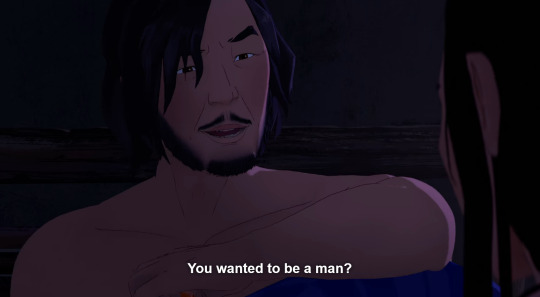
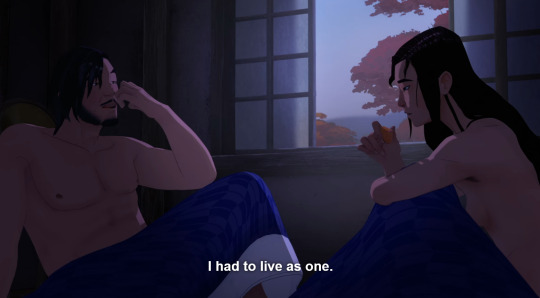
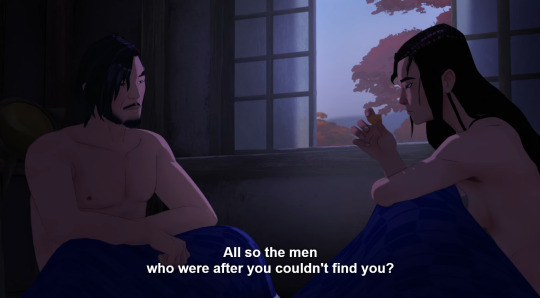
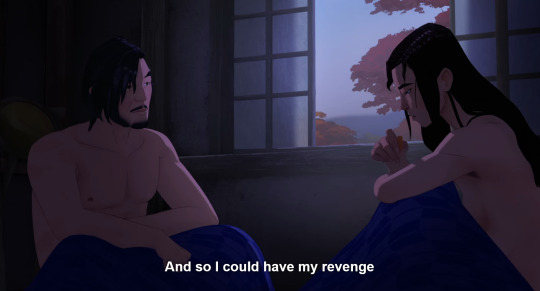
If she is ever discovered to be female by the wrong person, she will not only be unable to complete her quest, but there's a good chance that she'll be arrested or killed.
So it makes complete sense for Mizu to distance herself as much as possible from any behavior that she feels like would make someone question her sex.
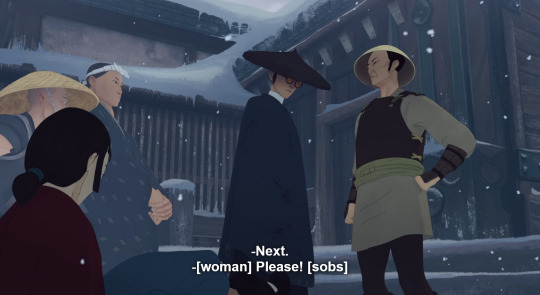
I felt so indignant toward Mizu on my first couple watchthroughs for this moment. Why couldn't Mizu bribe the woman and her child's way into the city too? If Mizu is presenting as a man, couldn't she claim to be the woman's escort?
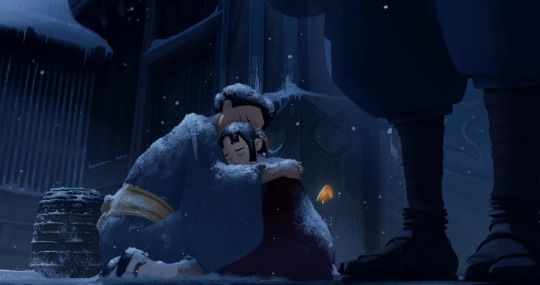
However, this moment makes things pretty clear. Mizu knows all too well the plight of women in her society. She knows it so well that she cannot risk ever finding herself back in their position again. She helps in what little way she can - without drawing attention to herself.
Mizu is not a hero and she is not one to make of herself a martyr - she will not set herself on fire to keep others warm. There's room to argue that Mizu shouldn't prioritize her quest over people's lives, but given the collateral damage Mizu can live with in almost every episode of season 1, Mizu is simply not operating under that kind of morality at this point. ("You don't know what I've done to reach you," Mizu tells Fowler.)
And while I still feel like Mizu has an obvious and established blind spot when it comes to Akemi because of their differences in station, such that Mizu's judgment of Akemi and actions in episode 5 are the result of prejudice rather than the result of Mizu's caution, I also want to establish that Mizu is just as caged as Akemi is, despite her technically having more freedom while living as a man.
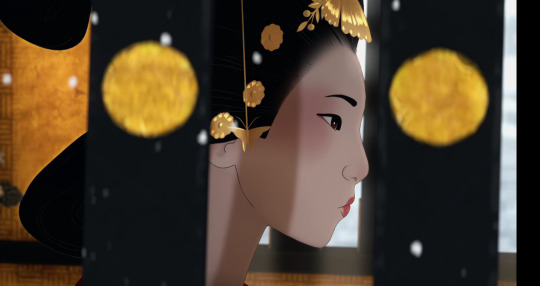
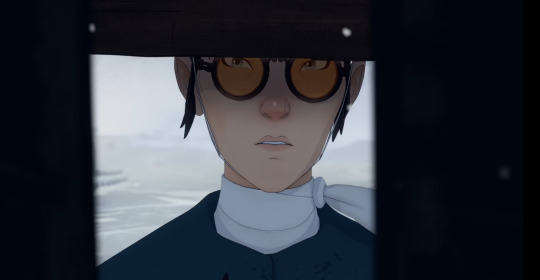
Mizu can hide her mixed race identity some of the time, and she can hide her sex almost all of the time, but being able to operate outside of her society's strict rules for women does not mean she cannot see their plight.
It does not mean she doesn't hurt for them.
Back to Mizu and collateral damage, remember that sparrow?

While Mizu is breaking into Boss Hamata's manse, she gets startled by a bird and kills it on reflex. She then cradles it in her hands - much more tenderly than we've seen Mizu treat almost anything up to this point in the season:
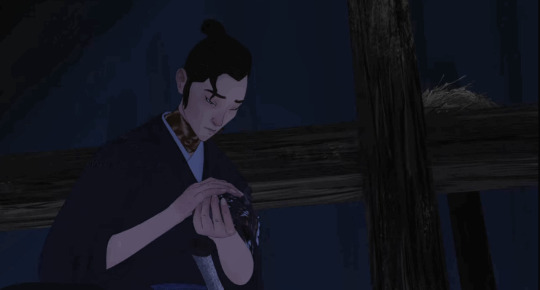
She then puts it in its nest, with its unhatched eggs. Almost like she's trying to make the death look natural. Or like an accident.
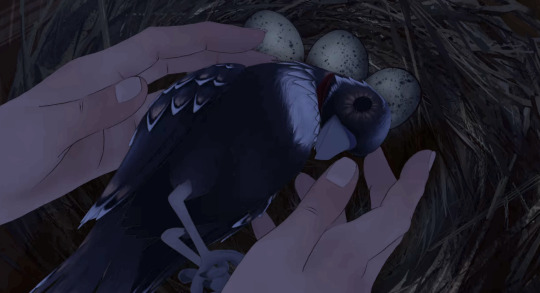
You see where I'm going with this.
When Mizu kills Kinuyo, Mizu lingers in the moment, holding the body tenderly:
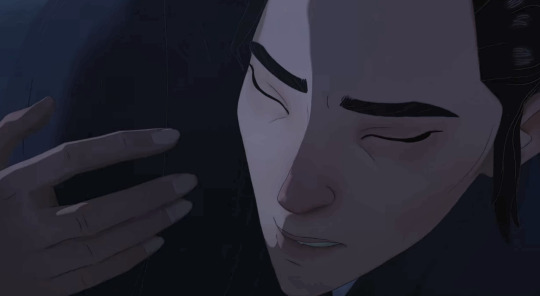
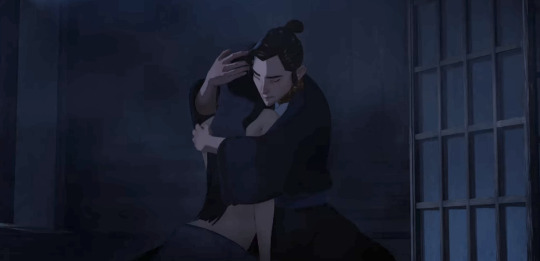
And btw a lot of stuff about this show hit me hard, but this remains the biggest gut punch of them all for me, Mizu holding that poor girl's body close, GOD
When Mizu arranges the "scene of the crime," Kinuyo's body is delicate, birdlike. And Mizu is so shaken afterward that she gets sloppy. She's horrified at this kill to the point that she can't bring herself to take another innocent life - the boy who rats her out.
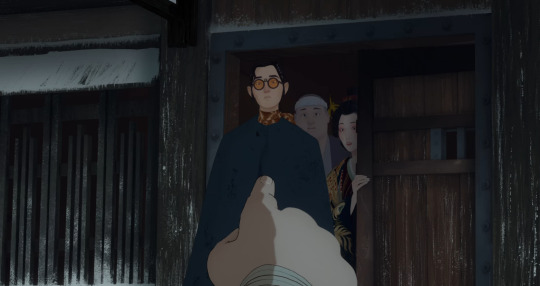
MIZU'S ONE MOMENT OF SOFTNESS AND MERCY, COMING ON THE HEELS OF HER NEEDING TO KILL A GIRL TO SPARE HER THE WORST FATE THAT THIS RIGID SOCIETY HAS TO OFFER WOMEN, AND TO SPARE A BROTHEL FULL OF INNOCENT WOMEN WHO ARE THE CASTOFFS OF SOCIETY, NEARLY RESULTS IN ALL OF THEIR DEATHS
No wonder Mizu is as stoic and cold as she is.
And no wonder Mizu has no patience for Akemi whatsoever right before the terrible reveal and the fight breaks out:
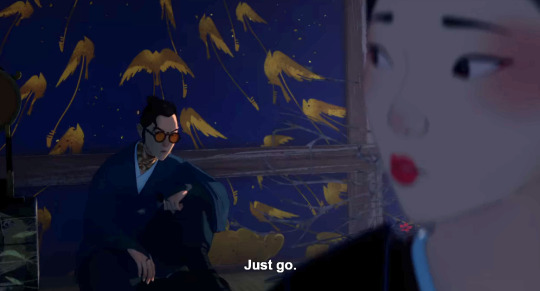
Speaking of Akemi - guess who else is compared to a bird!
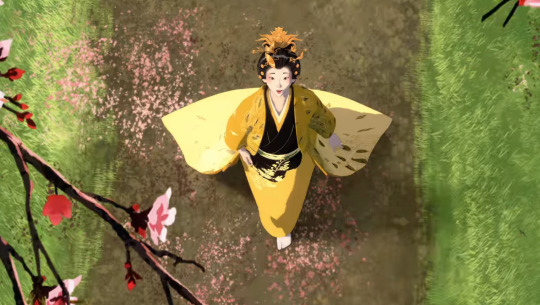
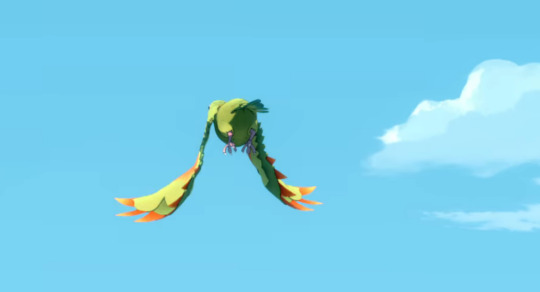
The plumage is more colorful, a bit flashier. But a bird is a bird.
And, uh
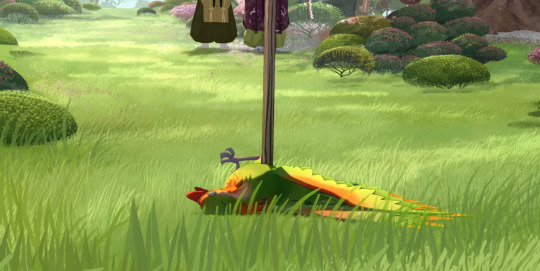
Yeah.
I like to think that Mizu killing the sparrow is not only foreshadowing for what she must do to Kinuyo, but is also a representation of the choice she makes on Akemi's behalf. She decides to cage the bird because she believes the bird is "better off." Better off caged than... dead.
But because Mizu doesn't know Akemi or her situation, she of course doesn't realize that the bird is fated to die if it is caged and sent back home.
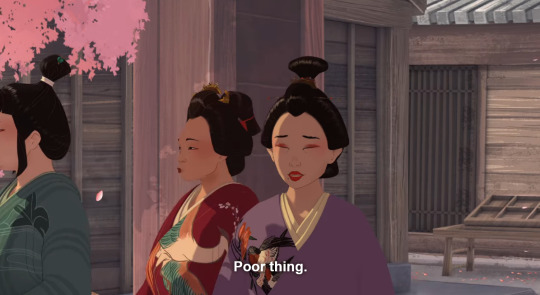
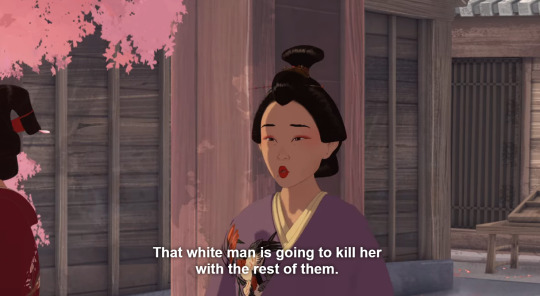
Mizu is clearly not happy, or pleased, or satisfied by allowing Akemi to be dragged back to her father:
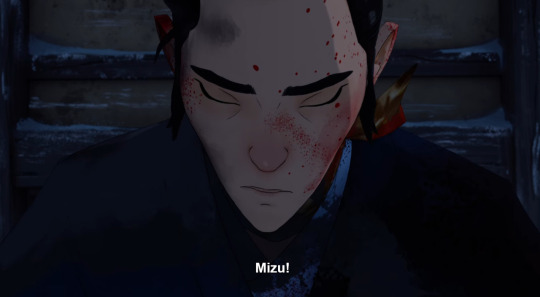
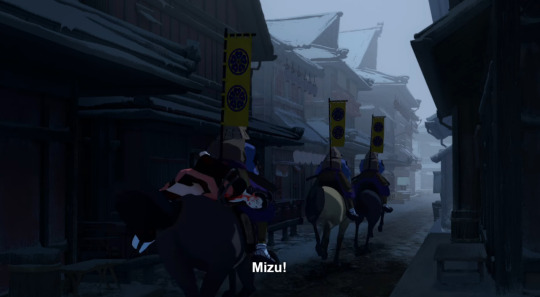
But softness and mercy haven't gotten Mizu anywhere good, recently.
There is so much tragedy layered into Mizu's character, and it includes the things she has to witness and the choices she makes - or believes she has to make - involving women, when she herself can skirt around a lot of what her society throws at women. Although, I do believe that it comes at the cost of a part of Mizu's soul.
After all, I'm gonna be haunted for the rest of this show by Mizu's very first prayer in episode 1:
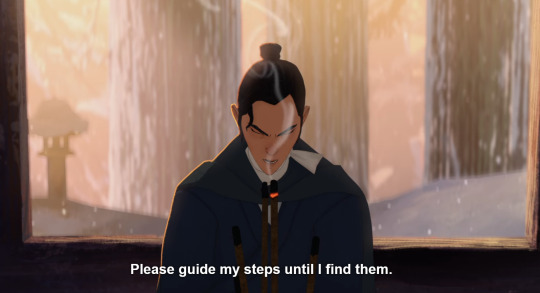
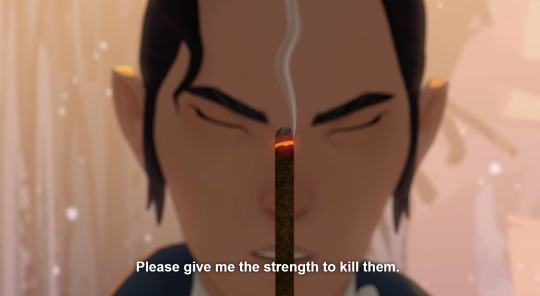
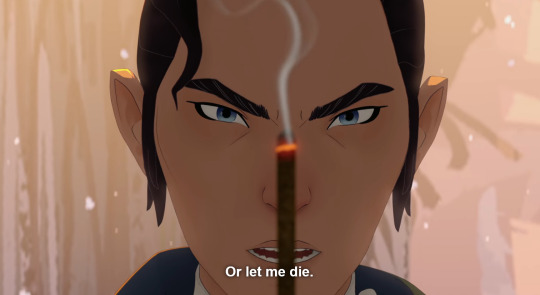
"LET" her die. Because as Ringo points out, she doesn't "know how" to die.
Kind of like another bird in this show:
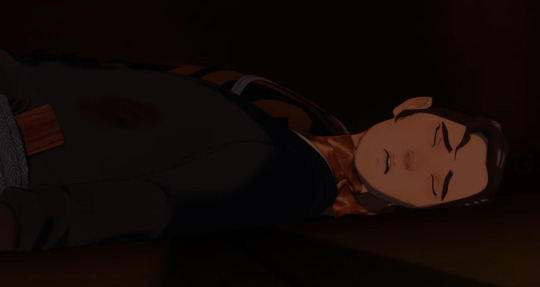
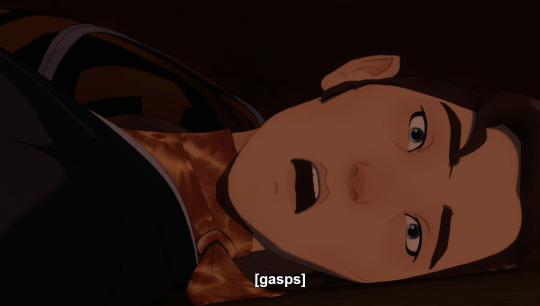
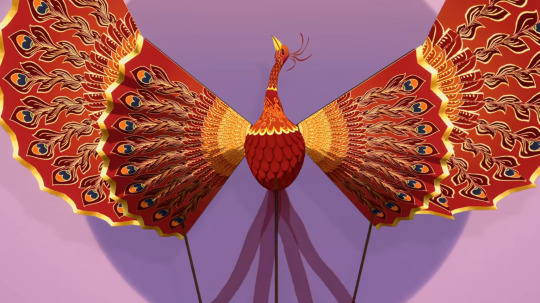
13K notes
·
View notes